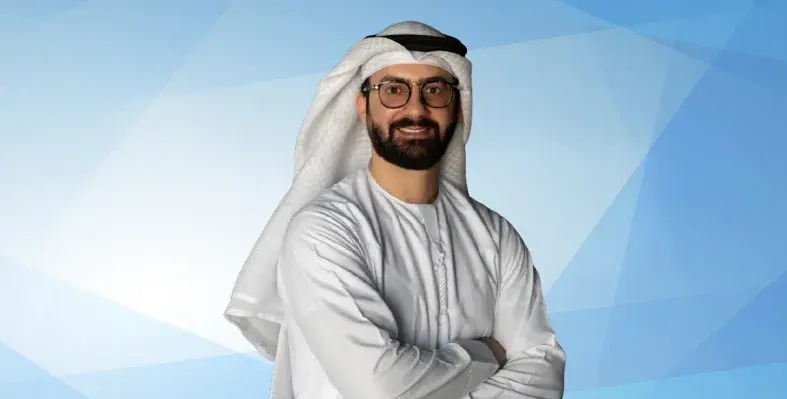Abu Dhabi-based Emirati fully independent EPC contractor and technology integrator MMEC Mannesmann has rebranded as Mannesmann Energy, reflecting its increased focus on new energies and support for the energy transition
Oil Review Middle East spoke to its CEO, Eng. Anas Aljuaidi, who explained the rationale behind the new brand identity, officially announced at the Investing in Green Hydrogen conference in London in September.
Aljuaidi explains that the company, with its MMEC Mannesmann heritage, has a strong background in oil and gas, construction and heavy engineering, but has since 2020, when it became a wholly-owned Emirati company, diversified into renewable energy and sustainability sectors.
“We are still supporting the decarbonisation of oil and gas, in for example EOR projects, but are looking to do more in renewable energy and energy generally, in support of the energy transition,” Aljuaidi says. The new name therefore more accurately reflects the scope of the company’s activities, with 50-70% of its projects envisaged to be in renewables by 2030.
Mannesmann Energy plays a key role in the UAE’s energy transition, focusing on low-carbon pilot projects and contributing to decarbonisation and net-zero goals. Its expertise supports the UAE Hydrogen Strategy by accelerating the adoption of advanced technologies through strategic partnerships with leading renewable sector providers. Eng. Aljuaidi notes that the company was the first contractor in the UAE to be involved in green hydrogen, having acted as the EPC contractor for the supply and operation of a high-speed hydrogen refuelling station in Masdar City, the first of its kind in the region, with recharging capabilities of 750 bar. It is about to announce its second blue hydrogen project in the region.
“We are emphasising our capabilities as an EPC contractor and technology integrator, and adding value from an engineering perspective to accelerate hydrogen implementation in the UAE,” he says. “Our ambition is to keep the highest market share when it comes to clean energy and clean hydrogen, whether blue or green, to support the UAE’s hydrogen strategy.
“Being a technology integrator is our strength, as we can work with any technology to meet our clients’ expectations. That’s one of our areas of expertise. We have an excellent engineering team with international expertise that can evaluate technologies and advise the project developer on the best technology for the application, and how to reduce the CAPEX and OPEX cost to make it more viable for the market.”
Keeping costs down
While hydrogen is rapidly gaining momentum, the cost of developing projects can be prohibitive, with many calling for increased government support and incentives. Eng. Anas Aljuaidi has a strong opinion on this.
“Our philosophy is that is we should not rely on governments to bring costs down; there is a lot we, the EPC companies, can be doing ourselves to reduce costs, for example expanding our supply chain by engaging new technology providers and SMEs rather than going to the top tier companies, whose costs are often unbelievably high, and by using competitive sources of components. In any hydrogen project, the electrolyser accounts for only 20% of the total cost; 80% is accounted for by the EPC. So the project developer should engage the EPC contractor at an early stage to reduce the risk and costs. That’s how we can really accelerate hydrogen production.”
So there is always room for reducing the price, but you can only do that by engaging the EPC contractor.
“When it comes to the OEMs, we can help them as well by advising them on the right elements for their electrolysers or their products. These should be obtained locally or where they are readily available, to avoid unnecessary transportation costs and the risk of supply chain disruption.
“Some elements are by nature very expensive, so it is important to select a competitively priced element to keep the end product cost lower. In China an electrolyser based on alkaline technology can costs US430,000 per kilowatt, compared with US$1,400,000 per kilowatt in Europe. That’s a massive difference and will have a big impact on the project capex.
“The project developer needs to select the right geographic location for their development and ensure that it is near to its customers, to avoid unnecessary costs, such as those entailed by converting hydrogen to ammonia for transportation and cracking it back to hydrogen when it reaches its destination.
“So instead of complaining that governments are not giving incentives, or not paying premiums, EPCs should take it upon themselves to reduce the costs, then everyone will come to you and purchase from you. That is how we, as EPC contractors can guide our customers to enable them to accelerate hydrogen implementation, and we are involved in some early-stage projects where we are doing this.”
Supporting localisation
Mannesmann Energy is also supporting the UAE’s efforts to localise electrolyser manufacturing in the country. Aljuaidi comments that the UAE is one of the most advanced countries when it comes to enabling clean energy, with the ‘Make it in the Emirates’ programme offering incentives for local manufacture, thereby enabling companies to produce products at a competitive price (hydrogen is one of the priority sectors). The Emirates Development Bank also provides financial support for businesses in strategic sectors, including renewables. Progress has been encouraging, and Aljuaidi is optimistic about the future.
“A number of agreements were signed during the Make it in the Emirates Forum last year and this year,” Aljuaidi says. “It’s a new market, and it will take time for projects to get off the ground, but I am sure it will come.”










